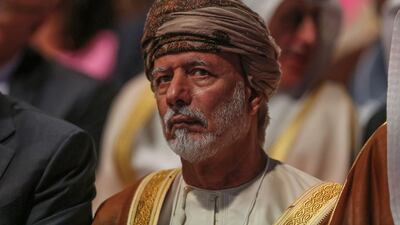Oman is trying "with other parties" to reduce tensions between the United States and Iran, the Omani foreign ministry said on Friday.
The ministry issued a tweet quoting Yousuf bin Alawi bin Abdullah, the sultanate’s minister responsible for foreign affairs, who met on Monday in Tehran with Iranian Foreign Minister Mohammad Javad Zarif.
"There is a danger that a war breaks out, hurting the whole world," the tweet cited the Omani minister as saying in an interview with an Arabic publication. "Both parties, the American and the Iranian, are aware of the danger."
Oman maintains friendly ties with both the United States and Iran and has previously been an important go-between for the two countries, which severed diplomatic relations in 1980. Washington and Tehran are in a protracted stand-off over Iran's nuclear and missile programmes.
Tensions have been building in the last few weeks after Washington sent more military forces to the Middle East. US officials said the move was to counter Iranian threats to its troops and interests in the region after President Donald Trump reinstated a range of economic sanctions against Iran. The Pentagon, which has already sent an aircraft carrier, a warship, B-52 bombers and a Patriot missile battery to the region, is considering sending additional troops to the Middle East, US Defence Secretary Patrick Shanahan announced Thursday.
President Hassan Rouhani said on Thursday that Iran would not surrender to US pressure and will not abandon its goals, even if it is bombed.
Iraq is also trying to avert a confrontation in the region, with Prime Minister Adel Abdul Mahdi announcing on Tuesday that he would send delegations to Washington and Tehran to help reduce tensions.
On Friday, Iraq's foreign minister urged Iran to abide by the international deal covering its nuclear programme, which has been weakened by the US decision to withdraw from it and Tehran's backing away from certain commitments.
"We think the JCPOA is a good agreement," said Mohammed Ali Al Hakim, referring to the Joint Comprehensive Plan of Action signed by Iran in 2015 with Russia, China, Germany, Britain and the United States.
"We encourage the Iranian government to stick to the JCPOA and stick to the spirit of the agreement and continue with it," Mr Al Hakim told reporters in Oslo, where he was attending a conference on combating sexual violence in humanitarian crises.
"The last thing we need is another conflict in the area. We've already had a lot of conflicts in the area," he said.

